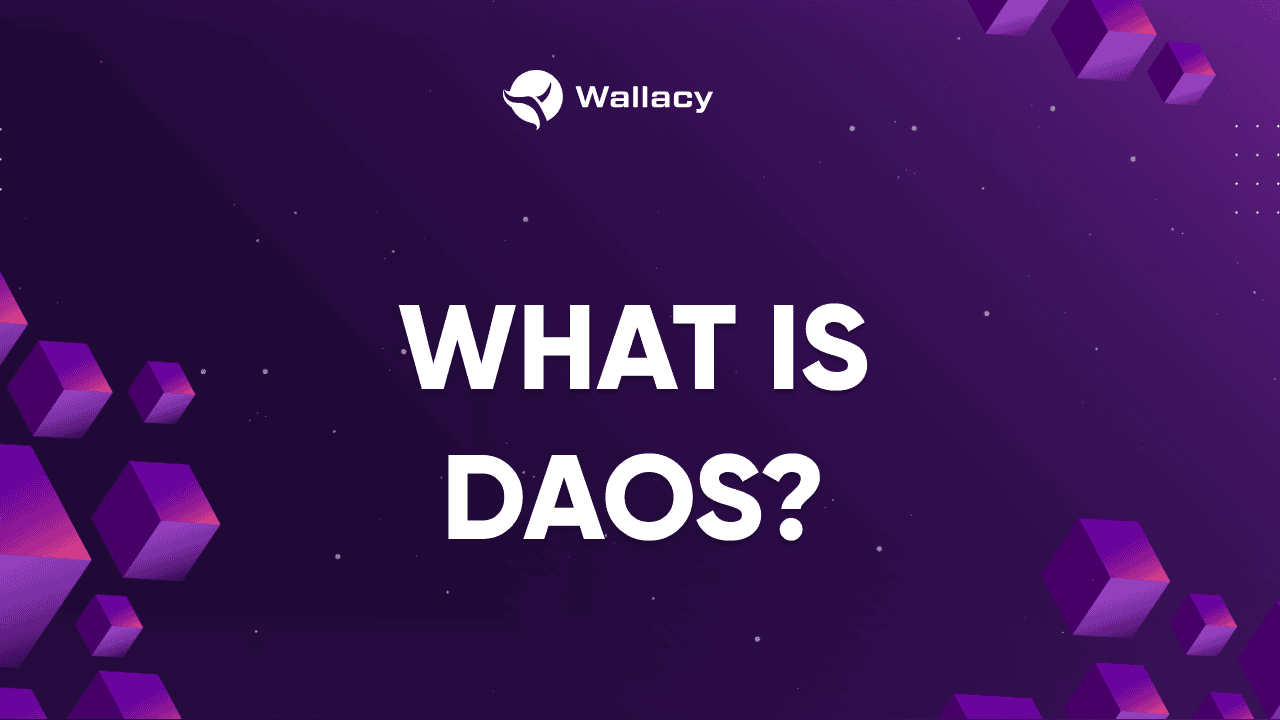Crypto Wikipedia
Search our knowledge base or browse categories below.
What is Decentralized autonomous organizations (DAOs)?

DAOs (Decentralized Autonomous Organizations) are organizations that operate on a decentralized blockchain network, without the need for centralized control or authority. DAOs are typically governed by a set of rules encoded in smart contracts, which are self-executing and transparent.
DAOs are designed to be open and transparent, allowing anyone to participate in decision-making processes and governance. Members of a DAO can propose and vote on decisions related to the organization’s operations, such as budget allocation, project proposals, and community initiatives. The decisions are executed automatically by the smart contract code, without the need for intermediaries or central authority.
DAOs have been used for a variety of purposes, including funding and governance of cryptocurrency projects, management of decentralized protocols and networks, and community-driven initiatives. DAOs can also be used to create digital assets and issue tokens, allowing members to participate in the governance of the organization and benefit from its success.
DAOs have been seen as a way to create more democratic and decentralized systems, as they remove the need for centralized control and intermediaries. However, DAOs also face challenges such as regulatory uncertainty and the risk of exploitation by bad actors. As with any emerging technology, DAOs are still in the early stages of development, and their full potential and impact are yet to be realized.